Table of contents
Being able to track down your ancestors several centuries ago is exciting, and people’s interest in it has grown exponentially in recent years. A Y-DNA test, also known as a Y chromosome DNA test, is one of the most popular DNA tests offered by ancestry DNA companies.
As the name suggests, this type of test uses your Y chromosome, which males inherit from their father, and compares it with a database to find matches that will indicate our paternal lineage.
While only males can take this type of DNA test, females can also benefit from it for ancestry research. What exactly is this test? How do you take it? Is it accurate?
We will be answering those questions and more as we go from basics to the specifics of what a Y chromosome test is all about. We will also explain why Nebula Genomics offers the best choice for Y chromosome ancestry testing.
What is the Y chromosome?
Most people have 23 pairs of chromosomes. We inherited half of those from our mother and the other from our father. Pairs 1-22 are named autosomes, and the 23rd pair of chromosomes is known as sex chromosomes or allosomes.
Women inherit two X chromosomes as the 23rd pair, one from dad and one from mom. Men inherit one X chromosome from mom and a Y chromosome from dad.
Since she only has X chromosomes in all her cells, a female will only pass on X chromosomes to her offspring. If her mate passes on an X chromosome to their child, there will be some recombination between both X chromosomes, which causes changes as generations go by.
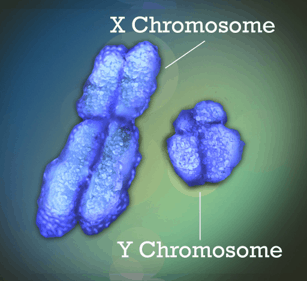
Every cell of a male has an X and a Y chromosome. His sex cells have half X chromosomes and the other half Y chromosomes. If the male passes on a Y chromosome to his offspring, since it is not homologous to the X from the mother, there will be no recombination.
This means that the Y chromosome is passed on virtually intact from father to son, to grandchildren, and so on. Keep this in mind, as it is essential to understand better how this paternal DNA is used to find ancestry.
What is the Y chromosome test?
Let’s now cover the basics of a Y chromosome test. This article does not intend to teach you how to interpret DNA results but rather give you a better idea of how you can learn about your ancestry through this type of test.
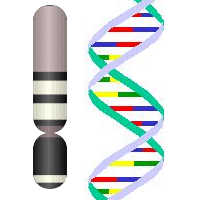
A Y chromosome test sequences and analyzes the Y chromosome in males. Since this chromosome is passed from a father to his sons, it can be traced back several generations. The two types of tests done are:
- Short tandem repeat (STR) – suitable for earlier ancestry
- Single nucleotide polymorphism (SNP) – helpful in determining more ancient ancestry
We will get into more detail on these two types later and discuss how they provide information on your haplogroup.
Most testing companies focus their efforts and advertising on autosomal testing. As opposed to the Y chromosome test, an autosomal test focuses on chromosomes 1-22.
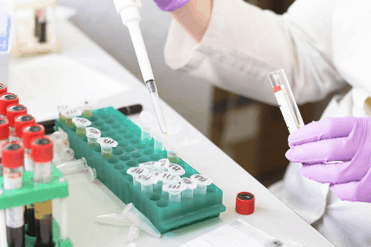
Granted, a Y chromosome test is not as extensive as an autosomal test, but it can do a better job at finding more distant ancestors from a longer time frame. The bottom line is that an autosomal DNA test will allow for the research of unknown fathers, grandfathers, or great grandparents. If you wish to find more distant ancestors, Y chromosome results provide solid clues.
Types of Y chromosome markers
After sequencing the Y chromosome, the next step into discovering ancestry is to compare patterns in the sequence. This is what we call markers. In straightforward terms, since the Y chromosome is passed on virtually unchanged, the markers on the Y chromosome that characterize a particular chromosome will be found in all of those who inherited it. This is what we look for in a marker test:
STR markers
Our DNA is made of repeating lines of nucleotides (adenine -A, cytosine-C, guanine-G, thymine-T), chained into large polymers. There are four nucleotides in DNA in total, but their order or sequence is particular to each individual. This is what makes up chromosomes.
A chromosome contains sequences of repeating nucleotides. These are what we know as short tandem repeats (STR). How many repetitions are present will vary from person to person. Take this sequence, for instance:
CCGTCATCATCATCAAGT
We notice that there is a repetition of the TCA sequence. When decoding the Y chromosome, we pull out STR like this one and compare them with the database to find DNA matches.
SNP markers
A single-nucleotide polymorphism (SNP) test is a recent innovation into some Y-DNA tests. Remember how we said that a DNA sequence is unique to an individual and how the Y chromosome is passed on almost intact from father to son? It turns out that sometimes (rarely, actually), there is a change in a single nucleotide in a DNA sequence. These are single-nucleotide polymorphisms – SNPs (pronounce “SNIPS”).
Say we sequence DNA fragments from different individuals, and they are:
AGTCTGA AGTCTCA
Notice how the G changed to C. This is a mutation that will originate in only one part of the planet and be passed on to generations. When we perform a Y chromosome SNPs test, we will go back in time, eventually landing to the geographic region where this mutation occurred, giving us a better idea of where our ancestors’ geographic origins.
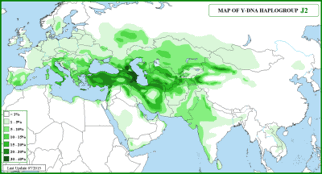
In terms of ancestry, SNP testing will then help us confirm haplogroups, which are groups of people with the same ancestor, either on the paternal or maternal sides. A SNP, when discovered, is designated with a letter and the number. The letter indicates the research team or lab that found it, and the number is the order of discovery.
Who should take a Y chromosome test?
Anyone with a Y chromosome can take this test. If you are on the road for a DNA testing plan, one of your first questions should be which are the proper candidates for you in particular. For example, if you want to know more about your mother’s father, Y chromosome testing your brother will not get you there since he inherited his Y chromosome from your father’s paternal line.
A female cannot take this test, so she will need to have her brothers tested, for instance, to trace her paternal line. If no brothers are present, uncles (on the father’s side) or male cousins could be tested. Notice that a Y chromosome test is only relevant to the paternal line. If you want to find another ancestral line of interest, you will need different tests.
There are cases in which you will probably not find a direct paternal line because, at some point, an ancestor either did not have male children or the male children died before having their own children, leaving only daughters to continue the offspring. Some genealogists refer to this as “daughtered out,” which is also used popularly to refer to a family having only daughters.
If you still want to use Y-DNA testing to find out about your great-great-grandfather’s paternal lineage, you will have to look for his brother’s paternal line descendants. If that fails, move up a generation further. As you can see, sometimes finding ancestry through Y-DNA can mean a lot of research.
Additionally, some males perform Y chromosome testing for infertility. This type of testing is useful because Y chromosome microdeletions (YCMD) can cause problems for how sperm forms.
How to take a Y chromosome test
The process to take this test is pretty simple. You just request your DNA kit and follow the instructions included once you get it and mail them back.
The sequencing process at Nebula Genomics decodes the entirety of your genome. This raw DNA is sent to our partners and compared to their extensive database.
What to expect from the Y chromosome test results
Most people will take a Y chromosome test to learn more about their ancestors from many generations back and find matches in places they had no idea about. As we have seen already, the outcome is limited to the paternal DNA, but it can also help discover a large haplogroup.
Your DNA testing results may come with either one of the following outcomes for surname projects:
- No matches: This happens because this person’s ancient roots are from a region that has not been tested too much or has uncommon variants in his Y chromosome, making it impossible to compare it with the existing database.
- X matches with x surnames: Sometimes a tester will match with ten people with ten different surnames.
- Several surnames: Sometimes, results may show multiple matches from different surnames, especially when taking the Big Y.
- Matches with men with an unexpected surname: This sometimes happens when a family’s name changed sometime in the past.
- Matches with men with the expected surname: Most testers are looking for this ideal situation where we find lots of matches with their surname.
Y chromosome and genealogy research
If you are looking to find out about unknown fathers, grandfathers, and great-grandfathers, we would not recommend a Y chromosome DNA testing genealogy since all that can be discovered with an autosomal DNA test. A Y chromosome test may be the best choice if you are looking for distant ancestors from many thousands of years back. You can take the autosomal test first to confirm the paternal line as far as possible, then add in your Y chromosome results. Nebula Genomics gives you all of this information with one easy test!
Perhaps you find yourself in a genetic brick wall or have a genuine interest in ancient origins or a common ancestor. These are valid enough reasons to take a genealogical DNA test and discover your family history through your paternal ancestors. As mentioned earlier, it is possible to find your closest ancestors through an autosomal DNA test. However, you will need a Y test to broaden your search and reach, and hope that your matches have an extensive genetic genealogy of their own.
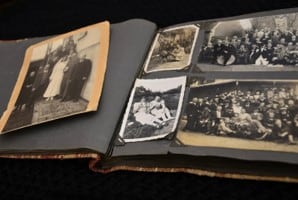
When looking deeper into your genealogy, you should be most concerned about finding a reputable database with the most potential matches. FamilyTreeDNA has one of the largest Y chromosome databases in the world. For more information, you may be intersted in viewing the resources provided by Sorenson Molecular Genealogy Foundation (SMGF), an independent DNA and genealogical research institution.
Nebula Genomics and integration with YFull
Imagine combining the power of the most complete DNA testing company and the largest DNA database. If that were not enough, Nebula Genomics also has a partnership with YFull, which offers Y sequence interpretation services.
You have better chances of accurately finding out about your distant ancestors when taking a whole genome sequencing test. While other DNA-testing companies only cover a tiny percent of your DNA, we cover 100%. We generate weekly updated reports and results that we safely submit to YFull to complete data interpretation and comparison.
Our 30x Whole Genome Sequencing guarantees a complete survey of your genetic composition, ensuring accurate results. Check out what our DNA tests, reports, and technology have to offer.
We also offer mitochondrial DNA testing (mtDNA testing), which you may be interested in as a complement to Y chromosome testing. Did you get a DNA test from Ancestry or 23andme? You can upload your raw data to Nebula Genomics and unlock even more information from your genome. Y DNA testing is different from paternity testing. You can learn more about paternity testing on our blog!
Edited by Christina Swords, PhD
